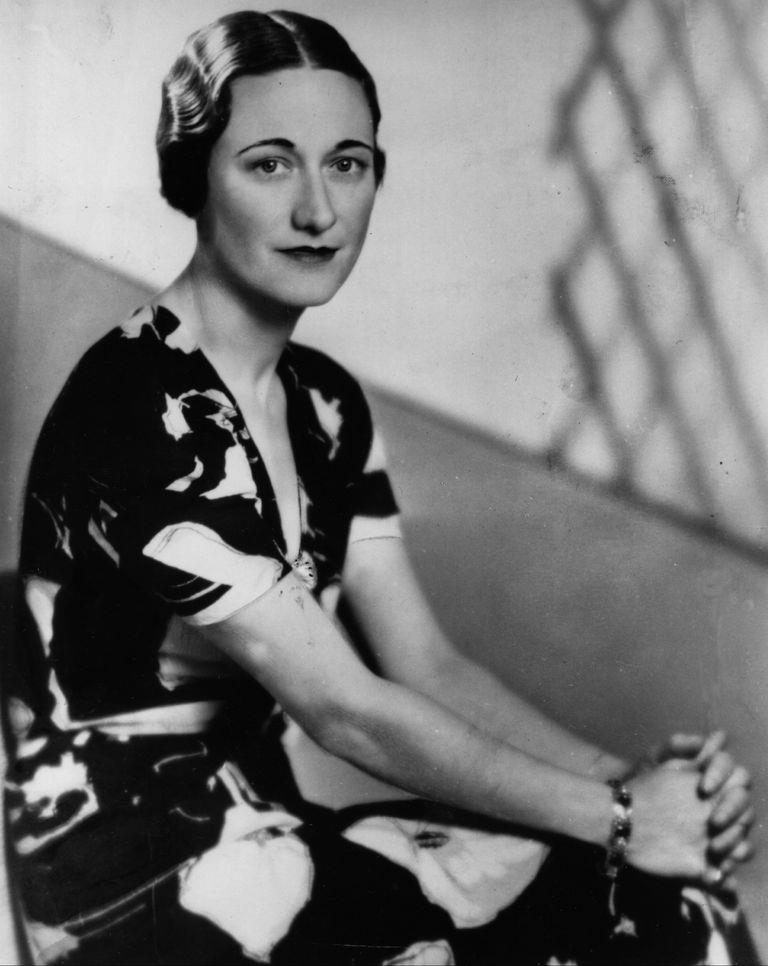
How Wallis Simpson Reacted When King Edward VIII Revealed His Plans to Abdicate
Biographer Anna Pasternak’s new book about the Duchess of Windsor takes a closer look at the woman involved in one of the most scandalous love stories in history.
BY ANNA PASTERNAK MAR 5, 2019
In 1936, King Edward VIII, was informed via letter that Parliament would not back his marriage to Wallis Simpson. Upon receiving that letter, he decided to abdicate the throne. The following excerpt from Anna Pasternak’s new book, The Real Wallis Simpson
After she had read the explosive missive, Wallis felt numb. She said: “This was the end I had always known in the back of my mind was bound to come.” Realizing that the government’s stance would trigger a crisis with the king, Wallis concluded:
‘Clearly, there was only one thing for me to do: it was to leave the country immediately as [Sir Alexander] Hardinge had implored.”
When Edward returned a few moments later, Wallis told him that her departure would be in everyone’s best interests. “You’ll do no such thing,” he told her. “I won’t have it. This letter is an impertinence.”
“That may well be,” replied Wallis. “But just the same, I think he’s being sincere. He’s trying to warn you that the government will insist that you give me up.”
“They can’t stop me. On the throne or off, I’m going to marry you.”
“Now it was my turn to beg him to let me go,” Wallis later recalled. “Summoning all the powers of persuasion in my possession, I tried to convince him of the hopelessness of our position. For him to go on hoping, to go on fighting the inevitable, could only mean tragedy for him and catastrophe for me.”
Edward remained deaf to her entreaties. Taking Wallis’s hand, he said: “I’m going to send for Mr Baldwin to see me at the palace tomorrow. I’m going to tell him that if the country won’t approve of our marrying, I’m ready to go.”

UNIVERSAL HISTORY ARCHIVEGETTY IMAGES
At this, the first mention between them of abdication, Wallis burst into tears. “David [as the royal was known by friends and family] was determined that I stay,” admitted Wallis. “He insisted that he needed me, and as a woman in love I was prepared to go through rivers of woe, seas of despair, and oceans of agony for him.”
She had fallen in love with Edward and was now all too aware of the sacrifice this would entail. Yet the thought of the vicissitudes of her suffering never seemed to register with him. Surely, the greater act of love would have been for Edward to let Wallis go? Yet he did not seem to be able to see matters from any other perspective than his own.
As far as he was concerned, he could not live without her and could not see that she might not be able to live with the consequences of his single-mindedness. Being blamed in perpetuity for stealing a beloved, popular king from his throne and almost destroying the British monarchy would prove to be a lifelong annihilating burden that Wallis was forced to bear.

TOPICAL PRESS AGENCYGETTY IMAGES
Typically, Wallis later reproached herself—rather than Edward and his narcissistic neediness—for being deflected from her decision to leave England immediately. “I should have realized that this was the fateful moment—the last when any action of mine could have prevented the crisis.”
She still could not fully comprehend that Edward was not going to let her go anywhere. Wallis also blamed herself for not realizing the true position of the king in the British constitutional system. Because she was accustomed to witnessing the apparent deference to his every wish, the fawning adulation that surrounded him, she was unaware of how vulnerable he really was and how little power he actually had vis-à-vis his ministers and Parliament. As a result, it was still inconceivable to her that his adoring public in Britain and the Empire would “ever allow anybody who had served and loved them so well to leave them.”

The Real Wallis Simpson: A New History of the American Divorcée Who Became the Duchess of Windsor
The king summoned Stanley Baldwin to a meeting at Buckingham Palace on Monday, November 16 at 6:30 p.m. In the meantime, he tried to get hold of Lord Beaverbrook, the Canadian-born press baron, only to discover that he was halfway across the Atlantic on the ocean liner, Bremen. A chronic sufferer from asthma, Beaverbrook was heading for the drier, healing climes of Arizona. Edward managed to persuade his powerful ally to head back to Britain when the ship set sail from New York 12 days later.